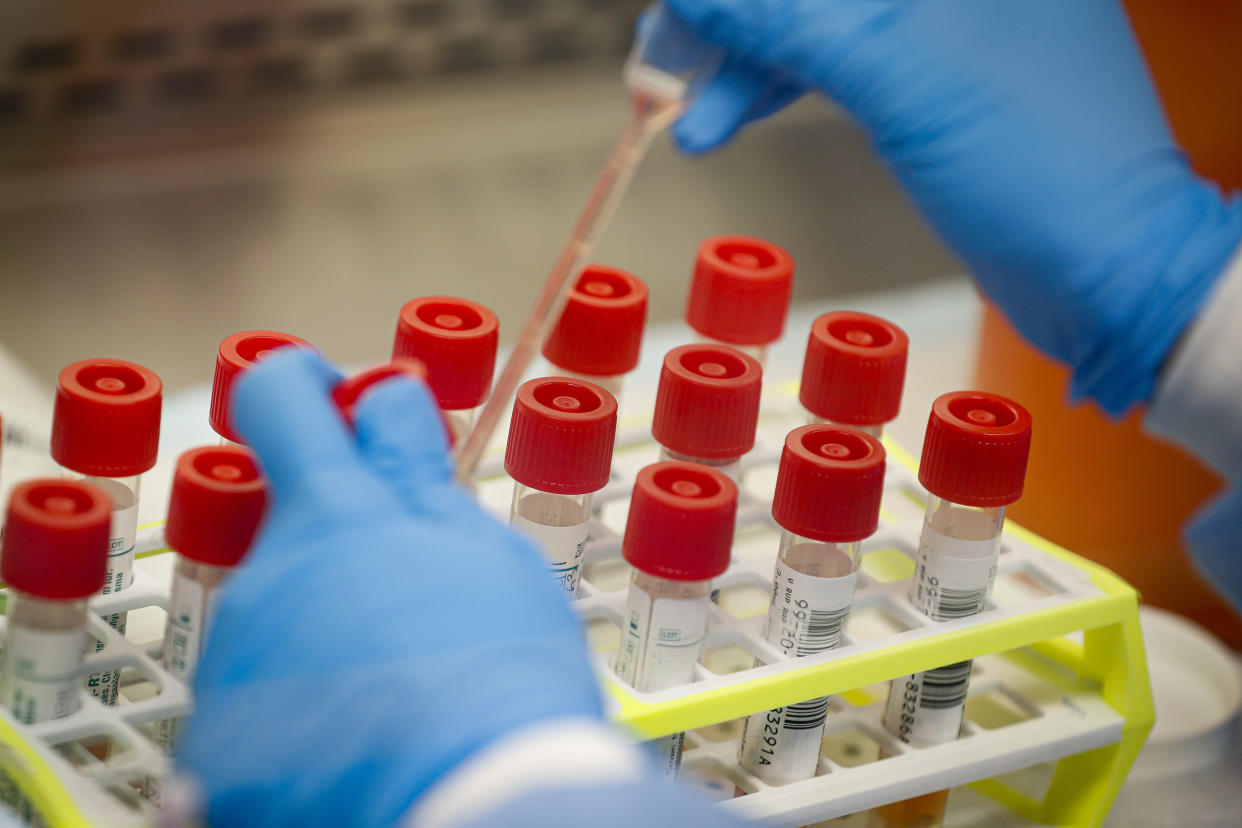Trump's top science adviser seeks help from public health experts on coronavirus response
President Trump’s top science adviser asked a group of national security and public health experts on Wednesday to stand at the ready to respond to urgent inquiries from the U.S. government and to contribute to the “scientific bulwark” that will protect Americans from the dangers of the spread of the coronavirus.
Kelvin Droegemeier, director of the White House Office of Science and Technology Policy (OSTP) since January 2019, said Trump is regularly attending meetings of Vice President Mike Pence’s coronavirus task force, which has convened in recent weeks for at least two hours every afternoon. “Trump visits the task force frequently,” Droegemeier told members of the rapidly assembled Standing Committee on Emerging Infectious Diseases and 21st Century Health Threats.
The meeting came hours after the World Health Organization officially labeled the coronavirus outbreak a pandemic based upon the “alarming levels of spread and severity, and by the alarming levels of inaction,” according to its director-general, Tedros Adhanom Ghebreyesus.
The White House and the Department of Health and Human Services requested in late February that the National Academies of Sciences, Engineering, and Medicine — which responds to the nation’s top scientific inquiries and was first chartered by President Abraham Lincoln in 1863 — bring together a team of top experts to not only respond to the immediate crisis at hand but also develop ways to anticipate, mitigate and prevent future threats posed by infectious diseases.
“There is so much about what’s happening now that is gripping the nation and the world with so much concern, fear for the unknown,” said Marcia McNutt, president of the National Academy of Sciences, who called in remotely to Wednesday’s meeting. “This is truly an all-hands-on-deck effort.”

“As a meteorologist, I know what it means to move with lightning speed,” joked Droegemeier, who quickly pivoted to discussing what the White House is doing to respond, including its frequent communications with the World Health Organization.
Droegemeier, who helped rejuvenate a White House science office left empty for the first 19 months of Trump’s presidency, said his office has been engaging with science and health ministers around the world, including the “five eyes” countries, referring to the high-level intelligence-sharing relationship between the U.S., the U.K., Canada, New Zealand and Australia. The OSTP has been working with the National Science Foundation, the National Institutes of Health and the Department of Energy. The White House chief technology officer, Michael Kratsios, also convened a panel of technology company representatives on Wednesday to ask how they might better share information as well as combat misinformation.
Critics of the White House’s ongoing strategy to combat the spread of coronavirus have suggested that the infrastructure and expertise within the White House on science and public health has been torn apart, including by the elimination of a team within the National Security Council devoted to responding to biological threats such as the Ebola and Zika viruses.
The White House’s failure to fill many scientific jobs in its early months led many experts to fear that a crisis like the one currently facing the United States would derail the White House and put American citizens in danger. Trump’s comments about how the coronavirus is no worse than the flu, contradicting some of his top health officials, as well as the lack of quick implementation or recommendations surrounding non-pharmaceutical remedies like social distancing, cancellation of events and limiting travel, have created a vacuum of high-level strategy and additional confusion.
And while Droegemeier is head of the White House’s science and technology policy shop, he was not formally appointed as the White House science adviser, a separate role that past presidents including Barack Obama have taken to bestowing on the head of the OSTP. The White House science adviser has more direct access to the president, including the ability to send memos and other advice rather than through intermediaries.

However, the experts on the panel noted that the problems in responding to the pandemic are not limited to White House leadership.
One reason for the lack of access to testing kits, according to multiple experts, is that while the scientific community has access to new advanced diagnostics like CRISPR technology, the cost for companies to create and seek FDA approval on diagnostic technology versus therapeutic solutions is about equal, while the return on investment on selling diagnostic solutions is much lower.
Tarah O’Toole, an executive vice president of In-Q-Tel, the CIA’s investment firm, noted that we are in a “technological renaissance” when it comes to diagnostics but find ourselves without the technology in a crisis due to this “major market failure” of the low incentives for companies to invest heavily in these technologies. O’Toole, the former undersecretary of science and technology at the Department of Homeland Security, suggested that officials develop a “road map” to “get the diagnostics we want now and in the future,” including developing at-home tests similar to pregnancy tests.
Another important issue raised by the committee is that even if the government provides advice or mandates on social distancing or work-from-home policies, a one-size-fits-all solution could disproportionately hurt marginalized communities that may have difficulty complying. “Barriers to compliance, including inability to stay home,” said Richard Besser, a doctor and CEO of the Robert Wood Johnson Foundation, should help inform “policy around wage support, child care, school lunches, immigrant access to health care” and other issues that lawmakers will have to consider while providing emergency funds during the crisis.
“Even if we understand the virus fully and have a very good idea of what people should do, the most marginalized communities … are going to be hit hardest because of their inability to comply with what the science says should be done,” said Besser.

_____
Read more from Yahoo News:


